A BOOK
10 of the Best Poems about Journeys
According to Thomas de Quincey, Wordsworth clocked up an estimated 180,000 miles during his lifetime, walking around his beloved Lake District (to say nothing of the Quantocks, where he lived near Coleridge during the 1790s). Given that there is a strong link between poets and travelling of various kinds – whether walking, sailing, or travelling in some more abstract, metaphorical or spiritual sense – we felt it was time we put together some of the greatest journey poems. Many, though not all, of these classic travelling poems are available in the excellent anthology, Nation’s Favourite Poems Of Journeys (Poetry).
Andrew Marvell, ‘Bermudas’.
Where the remote Bermudas ride
In th’ocean’s bosom unespied,
From a small boat, that row’d along,
The list’ning winds receiv’d this song.
‘What should we do but sing his praise
That led us through the wat’ry maze
Unto an isle so long unknown,
And yet far kinder than our own?
This poem, from the seventeenth-century poet Andrew Marvell, is set in the Atlantic ocean and focuses on a group of people aboard a boat, and clearly in exile from their native land. They spy the island of Bermuda, and sing a song in praise of the island. The next 32 lines of the poem comprise their song. The people aboard the boat praise God for leading them to this previously undiscovered island, which seems ‘far kinder’ than the island they have left behind, namely Britain.
These people have endured and eluded sea-monsters and storms, and God has led them to safety on the ‘grassy stage’ of this new island. It is mentioned that they are fleeing England because of ‘prelates’ rage’, namely religious persecution – so ‘Bermudas’ is a poem about undertaking a difficult journey to find a new place where a community of people can start afresh.
The Wedding-Guest sat on a stone:
He cannot choose but hear;
And thus spake on that ancient man,
The bright-eyed Mariner.
‘The ship was cheered, the harbour cleared,
Merrily did we drop
Below the kirk, below the hill,
Below the lighthouse top.
‘The Sun came up upon the left,
Out of the sea came he!
And he shone bright, and on the right
Went down into the sea …
Written in 1797-8, this is Coleridge’s most famous poem – it first appeared in Lyrical Ballads. The idea of killing an albatross bringing bad luck upon the crew of a ship appears to have been invented in this poem, as there is no precedent for it – and the albatross idea was probably William Wordsworth’s, not Coleridge’s (Wordsworth got the idea of the albatross-killing from a 1726 book, A Voyage Round The World by Way of the Great South Sea, by Captain George Shelvocke).
The poem is one of the great narrative poems in English, with the old mariner recounting his story, with its hardships and tragedy, to a wedding guest. Variously interpreted as being about guilt over the Transatlantic slave trade, about Coleridge’s own loneliness, and about spiritual salvation, The Rime of the Ancient Mariner remains a challenging poem about a journey whose lessons the ship’s crew, and we as readers, continue to learn from.
I sprang to the stirrup, and Joris, and he;
I gallop’d, Dirck gallop’d, we gallop’d all three;
‘Good speed!’ cried the watch, as the gate-bolts undrew;
‘Speed!’ echoed the wall to us galloping through;
Behind shut the postern, the lights sank to rest,
And into the midnight we gallop’d abreast …
Beginning with the wonderfully rhythmical lines ‘I sprang to the stirrup, and Joris, and he; / I gallop’d, Dirck gallop’d, we gallop’d all three’. But this poem, describing a horse-ride to deliver some important news (although we never learn what the news actually is). Instead, the emphasis is on the journey itself, with the sound of the galloping horses excellently captured through the metre of the verse. This poem has a notable claim to fame: in 1889, it became the first poem (spoken by the author) to be recorded on a phonograph, when Browning recited (half-remembered) words from the poem into an Edison phonograph at a dinner party.

Henry Cholmondeley Pennell, ‘The Night Mail North’.
Now then, take your seats! for Glasgow and the North;
Chester! – Carlisle! – Holyhead, – and the wild Firth of Forth,
‘Clap on the steam and sharp’s the word,
You men in scarlet cloth: –
‘Are there any more pas .. sengers,
For the Night .. Mail .. to the North!’
Are there any more passengers?
Yes three – but they can’t get in, –
Too late, too late! – How they bellow and knock,
They might as well try to soften a rock
As the heart of that fellow in green …’
Before W. H. Auden’s more famous ‘Night Mail’ poem from 1936, there was this poem, whose full title is ‘The Night Mail North (Euston Square, 1840)’ – 1840 being the year the penny post was introduced in Britain. Pennell captures the snatches of conversation on the train as it prepares to embark on its long voyage north and the passengers settle down for their journey in this skilful piece of what we might call documentary poetry.
Our journey had advanced;
Our feet were almost come
To that odd fork in Being’s road,
Eternity by term …
In many of the best journey poems, the journey is a metaphor for something greater – and this is certainly the case in this Emily Dickinson poem. And what journey is greater than that from life into death, mortality into eternity?
White in the moon the long road lies,
The moon stands blank above;
White in the moon the long road lies
That leads me from my love.
Still hangs the hedge without a gust,
Still, still the shadows stay:
My feet upon the moonlit dust
Pursue the ceaseless way …
In this poem, the king of lugubrious English verse writes about leaving his beloved, with the road lying ahead of him that ‘leads me from my love’. And although he trusts that the same road will eventually lead him back to his love, first he must travel far, far away.
That is no country for old men. The young
In one another’s arms, birds in the trees,
—Those dying generations—at their song,
The salmon-falls, the mackerel-crowded seas,
Fish, flesh, or fowl, commend all summer long
Whatever is begotten, born, and dies.
Caught in that sensual music all neglect
Monuments of unageing intellect …
W. B. Yeats wrote ‘Sailing to Byzantium’ in 1927, when he was in his early sixties, and the poem sees Yeats’s speaker announcing that the country he’s left behind is ‘no country for old men’: being old, the speaker felt out of place there, and so he is making a journey (a pilgrimage?) to the ancient city of Byzantium, which can be read as a symbol for his yearning for spiritual meaning: the poem, then, is about a spiritual journey, and renouncing the hold of the world upon us in order to attain something higher than the physical or sensual.
D. H. Lawrence, ‘The Ship of Death’.
Now it is autumn and the falling fruit
and the long journey towards oblivion.
The apples falling like great drops of dew
to bruise themselves an exit from themselves.
And it is time to go, to bid farewell
to one’s own self, and find an exit
from the fallen self …
A poem of angst and death, ‘The Ship of Death’ uses the metaphor of a journey to invoke the idea of self-discovery: the poem involves the poem’s speaker calling for the reader to prepare a ‘ship of death’ – ‘the fragile ship of courage, the ark of faith’ – to transport them to ‘oblivion’, travelling from ‘the old self’ to ‘the new’.
A nativity poem with a difference, ‘Journey of the Magi’ (1927) is spoken by one of the ‘Three Wise Men’ (as they’re commonly known), as they make their journey to visit the infant Jesus. The speaker reflects on the hardships he and his fellow travellers endure on their journey, and the implications of the advent of Christ for the Magi’s own belief system.
This poem, the title poem in Larkin’s 1964 collection, describes a journey from Hull to London on the Whitsun weekend and the wedding parties that Larkin sees climbing aboard the train at each station. Actually inspired by a train journey from Hull down to Loughborough in the Midlands, ‘The Whitsun Weddings’ captures the hope and togetherness these wedding parties symbolise – although the poem can also be read in a less optimistic way.
The author of this article, Dr Oliver Tearle, is a literary critic and lecturer in English at Loughborough University. He is the author of, among others, The Secret Library: A Book-Lovers’ Journey Through Curiosities of History and The Great War, The Waste Land and the Modernist Long Poem.
A BOOK
A book is a ship
of adventure and travel
to far-distant places
with tales to unravel;
a ship on a journey
to strange new lands
to snow-capped mountains
or hot desert sands.
A book is a ship
of your make-believe
to the past or the future
or the fancy you weave.
For a long ocean voyage
and a fabulous trip
to the lighthearted traveler
a book is a ship.
A book is a door
to another room
filled with sunshine
and flowers in bloom.
A door to the world,
to the wide-open spaces
with fields and farms
and brand new faces.
A book is a key
to wondrous treasure
to imagination
and endless pleasure.
When your world seems dull
and your life is a bore
just pick up a book
and open the door.
A book is a mirror
that reflects your being
that shows you the face
that your eyes aren’t seeing.
When you become anxious
to find yourself
the place to look
is a book on the shelf;
for a book is a mirror
in which you will find
the words that express
the thoughts in your mind.
When the image’s distorted
and you want to see clearer
always remember
a book is a mirror.
A book is a ladder
you climb on the way
to a vantage position
forever to stay
above the horizon
overlooking the plain
where graze the unread,
the simple, the plain;
a stairway to knowledge,
laborious at time.
No hill is worthwhile
that is easy to climb.
So rise above
to things that matter.
Each page is a rung
when a book is a ladder.
A book is alive
in the mind of the reader
who imagines himself
as the hero, the leader,
chasing the villain,
hunting the lion,
curing the sick,
the lame and the dying.
A book has a life,
a breath of its own;
but closed it remains
as dead as a stone.
A book is a thing,
an object; unread,
a book that’s unopened
is a book that is dead.
A book is a friend
when you are alone,
a silent companion
a pal of your own
that tells you its secrets
and no one can hear
the words that it reads
soundlessly in your ear.
A book is a friend
we all have in common
that comes to us only
whenever we summon.
Page after page
from beginning to end,
this above all
a book is a friend.
10 Beautiful Travel Poems For The Adventurer In You
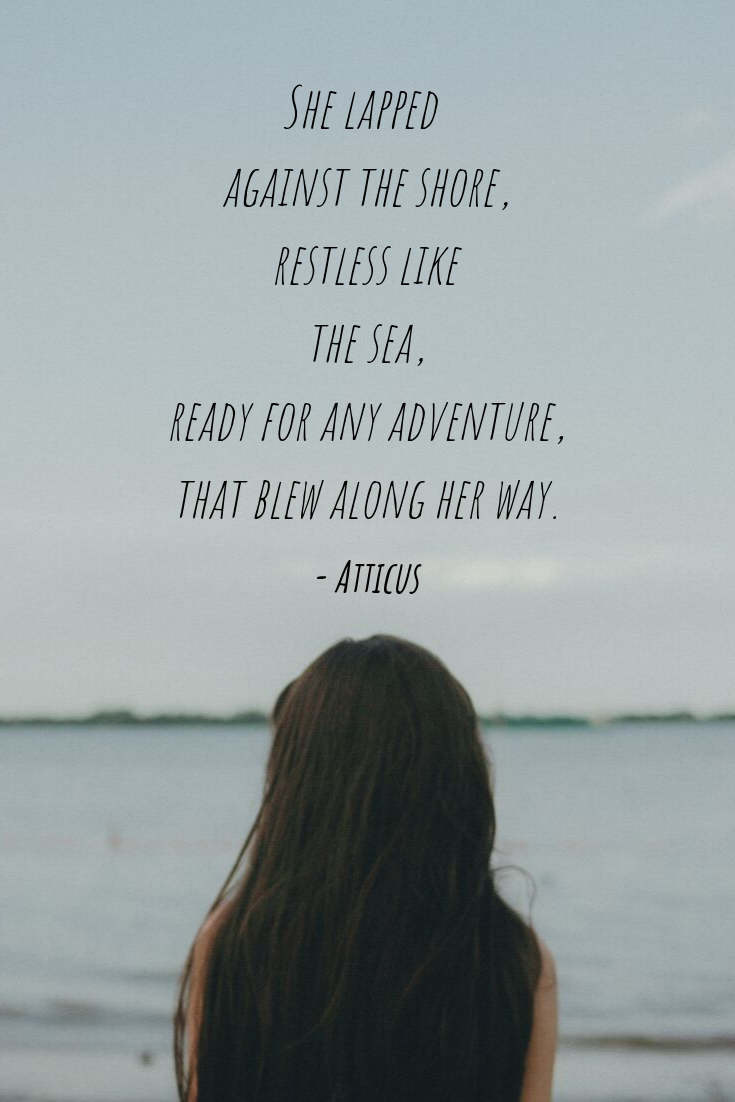
A Travel Poem For The One On A Journey. Any Journey.
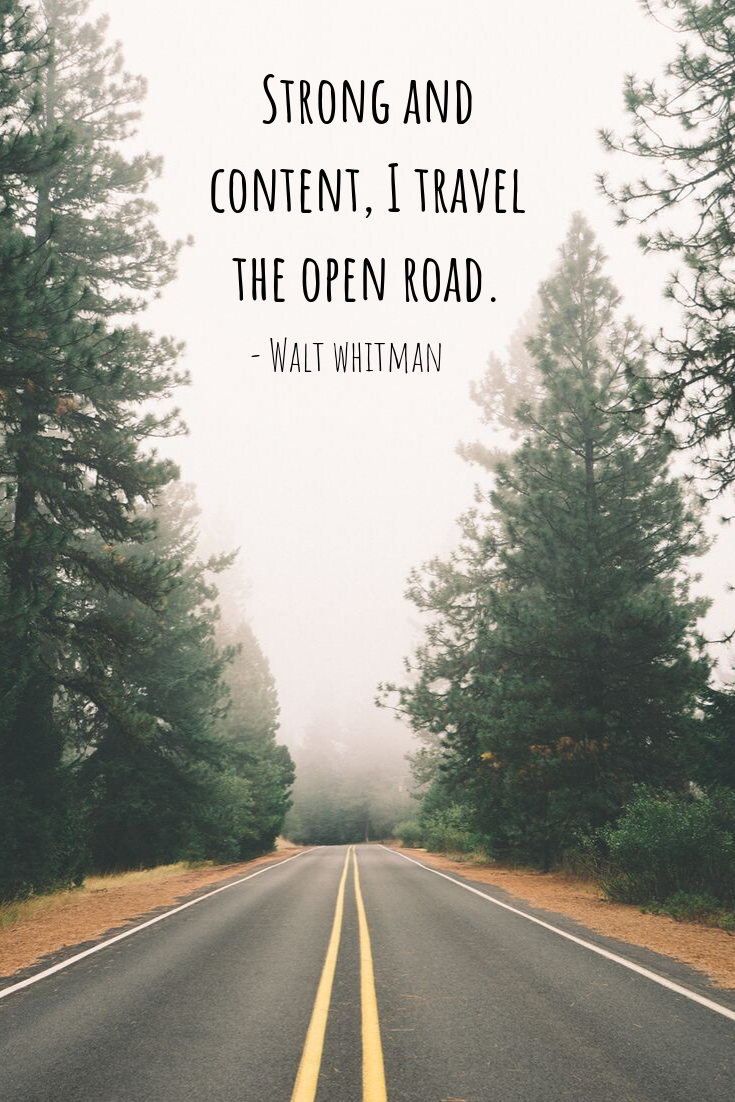
Afoot and light-hearted I take to the open road,
Healthy, free, the world before me,
The long brown path before me leading me wherever I choose,
Henceforth I ask not good-fortune, I myself am good-fortune,
Henceforth I whimper no more, postpone no more, need nothing,
Done with indoor complaints, libraries, querulous criticisms,
Strong and content I travel the open road.
– Walt Whitman, from Song of the Open Road
A Travel Poem That Sums Up Adventure In Four Gorgeous Lines
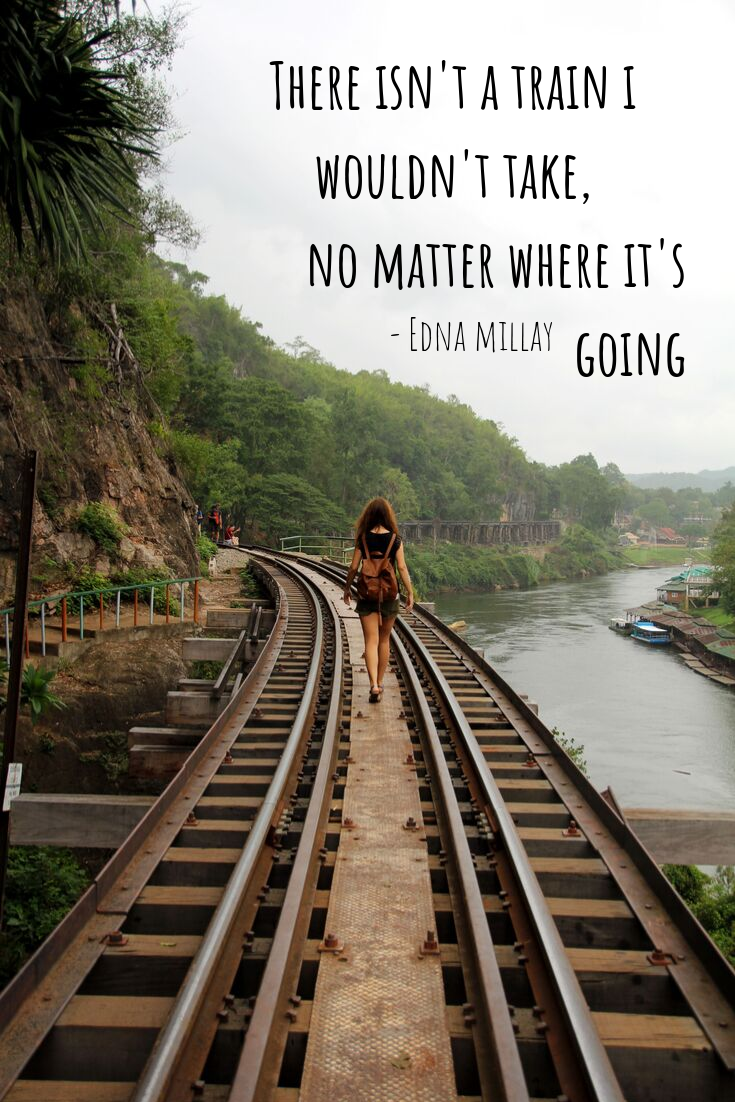
My heart is warm with the friends I make,
And better friends I’ll not be knowing,
Yet there isn’t a train I wouldn’t take,
No matter where it’s going.
– Edna St. Vincent Millay, from Travel
A Travel Poem From Margaret Atwood Because She Never Disappoints
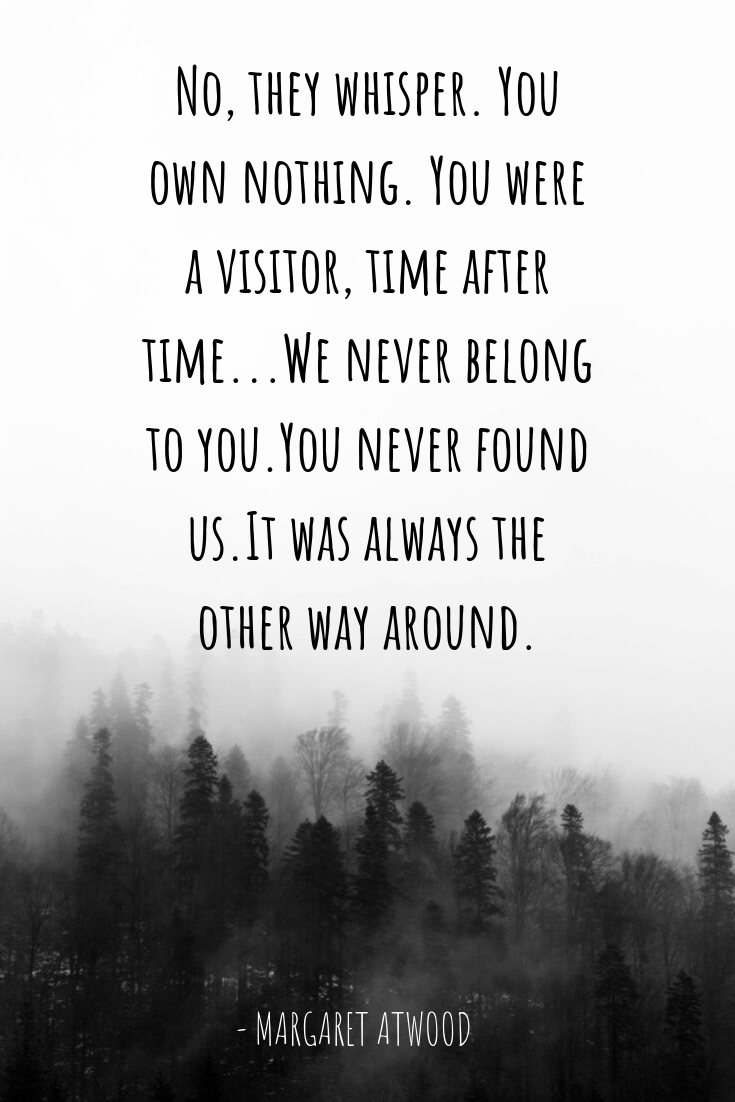
No, they whisper. You own nothing.
You were a visitor, time after time
climbing the hill, planting the flag, proclaiming.
We never belong to you.
You never found us.
It was always the other way around.
– Margaret Atwood, from The Moment
This Travel Poem Is Just Everything

You are not a tree. You are not bound
to the ground you walk on. You have
wings and dreams and a heart full of
wonder. So pick up your feet and go.
Spread kindness like a wildflower
wherever you go. Fall in love with the
life you live, and always leave people
better than you found them.
– Drewniverses, from Tumblr
This 19th Century Travel Poem Is Just. So. Good.
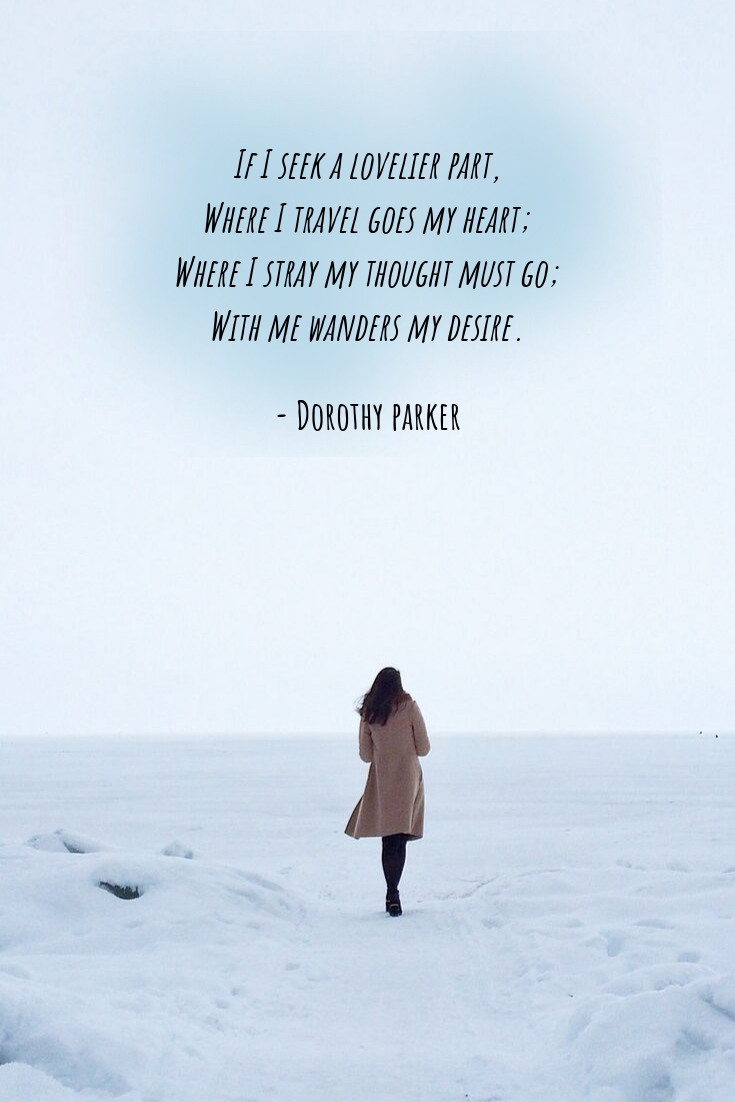
Half across the world from me
Lie the lands I’ll never see-
I, whose longing lives and dies
Where a ship has sailed away;
I, that never close my eyes
But to look upon Cathay.
Things I may not know nor tell
Wait, where older waters swell;
Ways that flowered at Sappho’s tread,
Winds that sighed in Homer’s strings,
Vibrant with the singing dead,
Golden with the dust of wings.
Under deeper skies than mine,
Quiet valleys dip and shine.
Where their tender grasses heal
Ancient scars of trench and tomb
I shall never walk: nor kneel
Where the bones of poets bloom.
If I seek a lovelier part,
Where I travel goes my heart;
Where I stray my thought must go;
With me wanders my desire.
Best to sit and watch the snow,
Turn the lock, and poke the fire.
Source https://interestingliterature.com/2018/08/10-of-the-best-poems-about-journeys/
Source https://www.abctales.com/story/jayfrankston/book
Source https://www.passporttoeden.com/travel-poems/